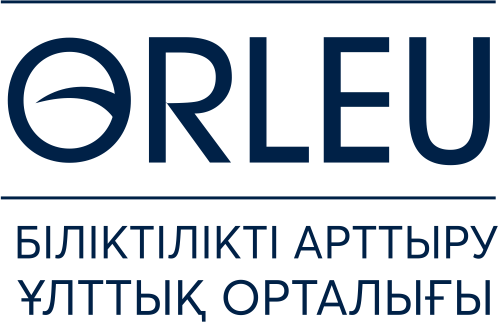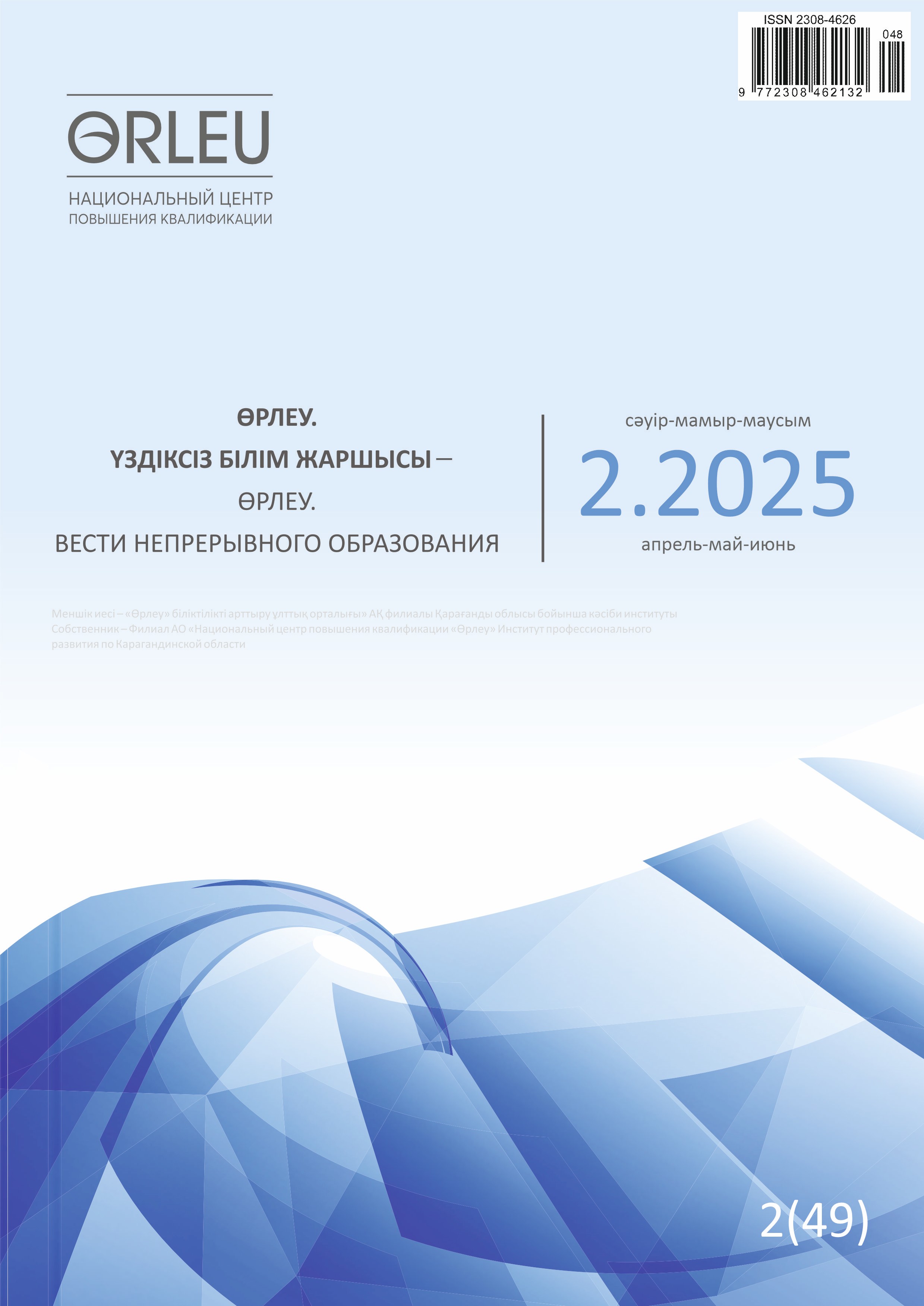Аңдатпа
Білім берудегі заманауи өзгерістер мұғалімдердің кәсіби дамуының қажеттіліктерін қанағаттандыра алатын икемді оқыту тәсілдерін талап етеді. Бұл мақалада бейресми білім беру қазіргі білім беру трансформациялары жағдайында мұғалімдердің кәсіби дамуының маңызды және икемді құралы ретінде қарастырылады. Үздіксіз оқуға, бейімделуге және инновацияларға қойылатын талаптардың артуы аясында мұғалімдердің кәсіби дамуының дәстүрлі үлгілері жиі жеткіліксіз болып жатады. Бұл зерттеудің мақсаты қазіргі білім беру өзгерістері жағдайында педагогтердің кәсіби дамуының құралы ретінде бейресми оқытуды зерттеу болып табылады.
Авторлар семинарлар, өзін-өзі оқыту, тәлімгерлік және кәсіби қауымдастықтарға қатысу сияқты бейресми оқыту әдістерінің рөлін қарастырады. Бұл әдістер мұғалімдердің жеке қажеттіліктерін қанағаттандырып, олардың педагогикалық құзыреттілігін арттыратын тиімді стратегиялар ретінде бағаланады.
Теориялық талдау мен эмпирикалық зерттеу негізінде (оның ішінде Қарағанды қаласындағы жалпы білім беретін мектептердің 27 мұғалімімен жартылай құрылымдалған сұхбаттар) бейресми оқытудың артықшылықтары айқын көрсетілген. Негізгі қорытындылар мұндай оқыту ортасының білімді белсенді түрде меңгеруге, инновациялық оқыту әдістеріне және мұғалімдердің мотивациясына ықпал ететінін дәлелдейді. Сұхбат нәтижелері бейресми оқытуға қатысу мен кәсіби сенімділік, оқыту тиімділігі және педагогикалық командалардағы ынтымақтастық арасындағы тығыз байланысты көрсетеді.
Сонымен қатар, авторлар түрлі білім беру теорияларын (тәжірибелік оқыту, андрогогика, коннективизм және т.б.) біріктіретін және тұлғалық, әлеуметтік әрі ұйымдық факторларды қамтитын бейресми оқытудың моделін ұсынады. Бұл модель бейресми педагогикалық білім беру бағдарламаларын жүзеге асыру мен олардың нәтижелілігін бағалау үшін тәжірибелік негіз ретінде қызмет етеді.
Зерттеу бейресми оқыту тек ресми кәсіби дамуды толықтырып қана қоймай, сонымен қатар ХХІ ғасыр сыныбының өзгермелі талаптарына бейімделу қабілетін нығайтатынын көрсетеді. Ұсынымдар мұғалімдердің бастамаларын институционалды қолдауды, оқытудың икемді форматтарына қолжетімділікті кеңейтуді және бейресми оқытуды ресми білім беру жүйесіне интеграциялауды қамтиды.

